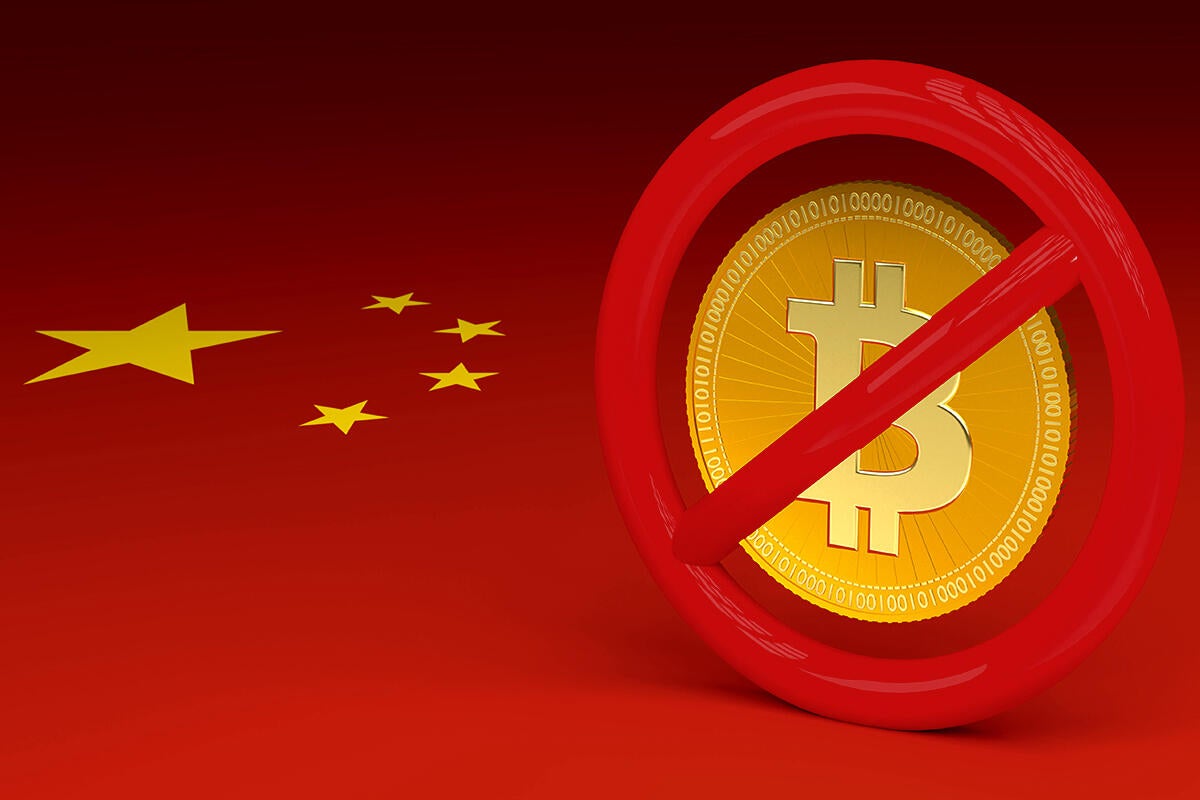China once again cracks down on cryptocurrencies, news outlets

Credit to Author: Lucas Mearian| Date: Thu, 23 Aug 2018 10:06:00 -0700
In an ongoing campaign to tamp down the growth of once-flourishing cryptocurrencies it sees as a threat, the Chinese government has ordered more than a half dozen online news outlets to shut down and banned physical venues from hosting crypto-related events.
On Tuesday, eight blockchain and cryptocurrency-focused media outlets were banned on WeChat, China’s most influential instant communication and mobile payment app, for allegedly violating new government regulations forbidding the publishing of information related to initial coin offerings (ICOs) or cryptocurrency trading speculation.
Last week, Beijing’s central Chaoyang district authority also banned hotels, office buildings and shopping malls from hosting events promoting cryptocurrencies, according to a document leaked online this week, and confirmed by the South China Morning Post with the local authority.
In the same way that Facebook has been blocking ICO advertising, China is blocking the news accounts of cryptocurrencies and token sites, seeking to starve them of publicity, according to Windsor Holden, head of Forecasting & Consultancy at U.K.-based Juniper Research.
“The underlying rationale is that, as many ICOs/cryptocurrencies are believed to be either inherently fraudulent or used for illegal purposes (e.g., money laundering), reducing awareness of them will reduce consumer exposure to fraud and thereby reduce the overall scale of associated criminal activity,” Holden said via email.
At the same time that it’s restricting cryptocurrencies, such as bitcoin, China is not attempting to ban blockchain, the foundational electronic ledger technology behind digital currency; in fact, Chinese authorities see blockchain as having great potential for creating business efficiencies. In 2017, China filed more than twice as many blockchain patents as the U.S., the second-ranked country. Seven of the top 10 companies worldwide filing blockchain patents were Chinese, according Holden.
“Cryptocurrency is another matter entirely, and the actions by the Chinese government reflect two separate concerns. The first is currency flight, which was of such concern to the Chinese government that the Chinese Central Bank first inspected and then tightened regulation of the country’s Bitcoin exchanges to reduce capital outflows, before all such exchanges were banned in September 2017,” Holden said. “At the same time, the government also banned domestic trading via sites outside mainland China, such as the Hong Kong-based Bitfinex.”
Earlier this month, the Cyberspace Administration of China officially banned all cryptocurrency-related commercial activities, according to a tweet by Dovey Wan, managing director of Dhanua Capital, a California-based venture capital fund.
Tencent Holdings, the parent company behind WeChat, released a press statement about the media outlet bans saying that they were “suspected of publishing information related to ICOs… and speculations on cryptocurrency trading,” but the company also claimed it has been adhering to the regulations established earlier this month. Those new regulations are vague and do not specifically cite cryptocurrency or its foundational blockchain technology.
With cheap electricity, China was once a haven for vast, power-hungry server complexes that perform the algorithmic processing for bitcoin and other blockchain-based virtual currency networks. More recently, however, China has clamped down on the activity.
Last year, China banned ICOs, a form of crowdfunding for cryptocurrencies, and later put the kibosh on trading in electronic currencies. More recently, the government began shutting off the power faucet for bitcoin mining pools, or large server farms that perform cryptocurrency processing.
There are various “good” reasons China and other countries hope to take a more hands-on regulatory approach to cryptocurrencies, which to date have existed in an oversight Wild West, according to Martha Bennett, a principal analyst at Forrester Research.
There is a growing concern that cryptocurrency could be a threat to current financial systems through unbridled speculation and unsecured borrowing by consumers looking to purchase the virtual money.
“We have seen increasing evidence that people are borrowing to invest in cryptocurrencies, and in some cases borrowing on credit cards to invest in it,” Bennett said in an earlier interview. “That could lead to a credit collapse.”
Cryptocurrency networks have also long been considered a channel for money laundering, and China is not the only country seeking to more tightly regulate the digital currency.
At the same time, Chinese authorities, along with other government officials, have been making noise about the possibility of creating a government-backed cryptocurrency.
A government-backed, blockchain-based digital token would offer the benefits of an international currency usable for settlement of global trade and holdings. And it would be one with lower fees because it would require less administration through the use of smart or self-executing contracts.
Yao Qian, who heads up research in the field at the People’s Bank of China, said in March there should be a single bank-issued digital currency (CBDC) incorporating ‘elements of cryptocurrency’, but nothing concrete has emerged since, according to Holden.
“At the current phase, CBDC may mainly focus on digitalizing the fiat currency,” Qian said at the time. “But it’s inevitable for CBDC to integrate more features in the future. An approach that just rigidly mimics and digitalizes the fiat currency may undermine the competitive edge of CBDC in the long term.”
Such cryptocurrencies, so called “stablecoin,” are tied directly to a country’s fiat money or backed by a commodity, such as gold.
For example, OneGram is a gold-backed cryptocurrency that backs each digital coin with a gram of gold. Each transaction of OneGram Coin (OGC) generates a small transaction fee which is reinvested in more gold (net of admin costs), thus increasing the amount of gold that backs each OneGram, according to a white paper.
The U.K’s Royal Mint has begun selling cryptocurrency tokens against bars of gold, and has even called its Royal Mint Gold, “The New Digital Gold Standard.”
“I know central banks in lots of places are looking at this,” Brian Behlendorf, executive director of Hyperledger, a collaborative formed to create blockchain technology for business use. ” We may eventually see central banks issue bonds against cryptocurrencies backed by their status as a tier one bank.”